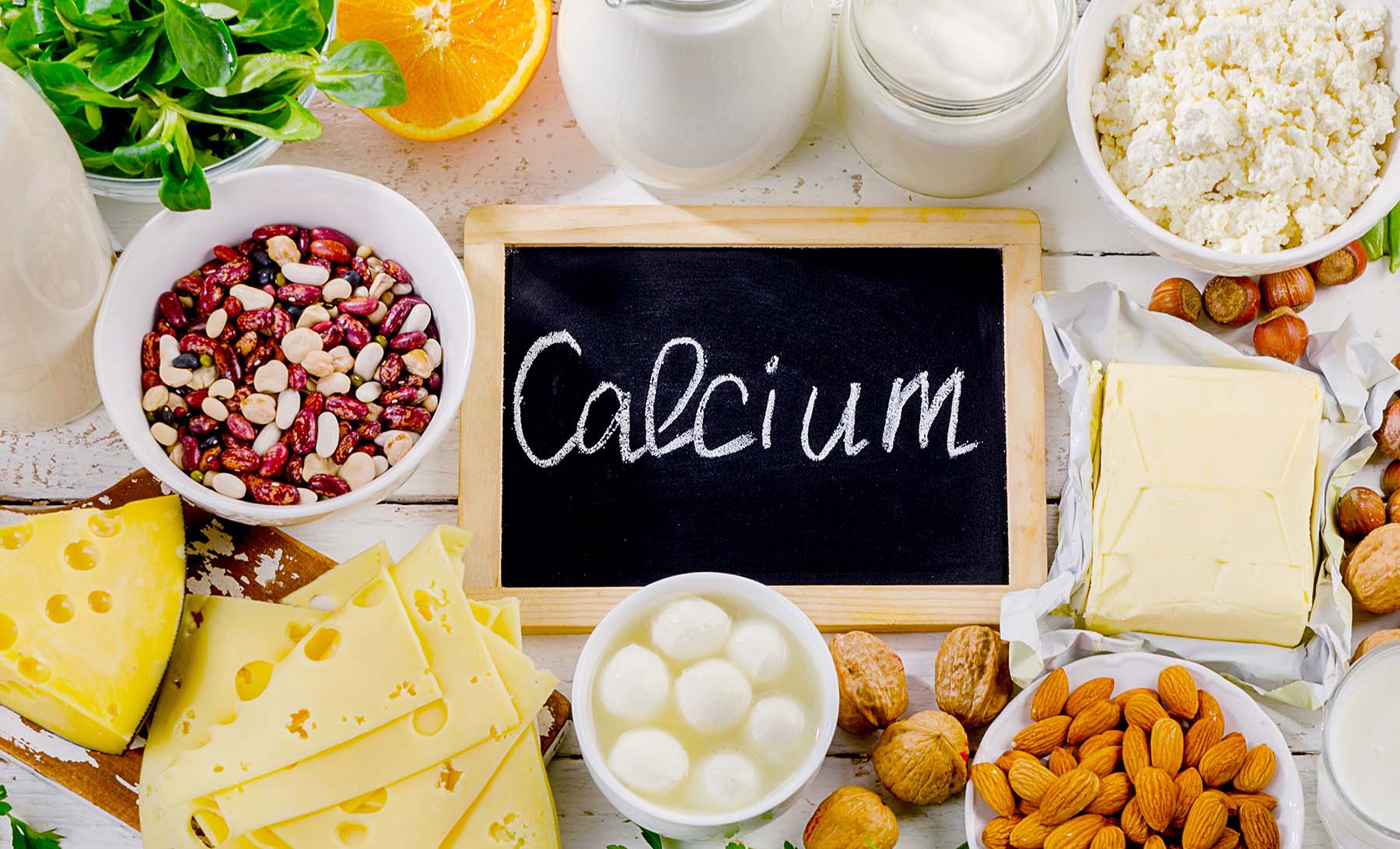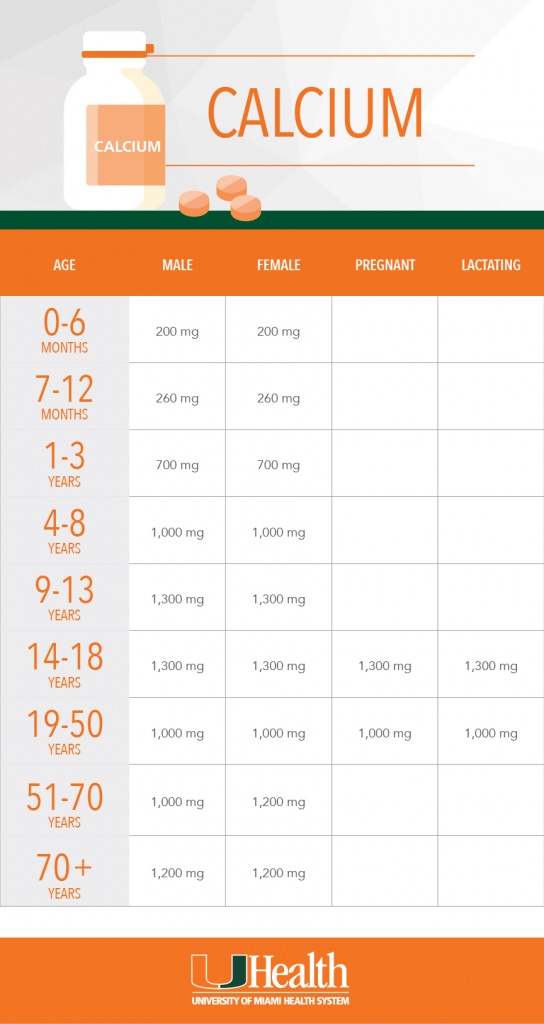Beyond Bones – Why Calcium Does a Body Good

If vitamins are essential to life, minerals are equally important. That’s the word from Sheah Rarback, a registered dietitian nutritionist with the University of Miami Health System. In a previous series, Sheah weighed in on vitamins. In this series, she does a deep dive into seven minerals.
If minerals had a high school yearbook, calcium would be voted “most popular”. Why is that?
Sheah Rarback: Most of us know that calcium builds bones, but it also strengthens your teeth and helps your muscles, nerves, blood vessels, and heart rhythm function properly. Some studies link calcium supplements with a lower risk of colorectal cancer. It may also help alleviate PMS symptoms.
The body doesn’t produce calcium, so you have to get it from calcium-rich foods and supplements. To absorb and use calcium, your body also needs vitamin D.
You’ve warned us before about too much of a good thing. Does this apply to calcium?
SR: I recommend always getting enough calcium to keep your bones healthy, especially as you age. The chart shows recommended levels by age group. But yes, too much calcium (2,000 mg/day is the upper limit for adults) may cause problems. Calcium is often blamed for creating kidney stones. It’s actually supplements, not calcium from food, that create larger kidney stones. Avoid them by drinking plenty of water daily and not over-supplementing.
For example, a 50-year-old woman who eats three servings of calcium-rich food daily is meeting her recommended daily amount (RDA) with food and doesn’t need supplements. However, if a person has osteoporosis, is at risk for osteoporosis or has a health condition or habits that deplete calcium, they should speak to their doctor to see if they need supplements
Are there health conditions that affect our ability to absorb calcium?
SR: Definitely. People who are lactose intolerant, vegan, or those with gastrointestinal disorders can become deficient. Signs of a severe deficiency include:
- Low bone mass
- Bone fractures
- Abnormal heart rhythm
- Teeth that chip or break easily
- Convulsions
Do smoking, caffeine, and alcohol deplete calcium?
SR: Smoking is one of the worst things you can do to your body. It creates bigger health issues than calcium deficiency, including increased risk of cancer. As far as caffeine, two tablespoons of milk (or calcium-fortified milk substitute) per day negate the effects. Women who drink more than one glass of alcohol daily and men who drink more than two drinks daily are also at risk of deficiency. If you’re drinking that much, you might be substituting alcohol for nutritious foods. Also, sodas and high-salt foods leach calcium from the body through urine. Corticosteroid and heartburn medicine also negatively affect calcium levels.
What’s the best way to get enough calcium?
SR: Always start with food, then supplement. There are enough calcium-rich foods to satisfy any palate:
- Almonds
- Black-eyed peas
- Broccoli and broccoli rabe
- Calcium-fortified milk substitutes
- Dairy: milk, yogurt, cheese
- Edamame
- Kale
- Tofu made with calcium sulfate
- Turnip greens
- Sardines and canned salmon with bones
- Sesame seeds and tahini
- Seaweed
Which is the best types of calcium supplements?
SR: Of the two most common – calcium carbonate and calcium citrate – citrate is better for three reasons. First, it’s more easily absorbed by the body. It also causes fewer digestive issues and doesn’t have to be taken with food, like calcium carbonate.
The better supplements contain vitamin D and other bone-building substances like magnesium. When shopping, look for calcium with “USP” or “CL” on the label. U.S. Pharmacopeia (USP) and Consumer Labs (CL) are independent agencies that test supplements for quality and efficacy.
To absorb calcium better, take supplements twice a day; one 500 mg supplement in the morning and the second at night.
Calcium supplements can interact with some bisphosphonates and blood pressure medication. Ask your pharmacist about timing your calcium between medication doses and whether you should take it with food.
The takeaway: Calcium strengthens bones and teeth and helps your heart, muscles, and nerves function.
It may lower your risk of colorectal cancer and reduce PMS symptoms. Your best sources are dairy, dark leafy greens, calcium-fortified foods, tofu, sardines, and canned salmon. Pregnant, lactating, and post-menopausal women need extra (see chart), as do the lactose-intolerant, vegans, people with digestive disorders, and smokers. Buy calcium citrate supplements with USP or CL on the label, but don’t over-supplement. If you eat several servings of calcium-rich food daily, ask your doctor if you still need supplements. Drink plenty of water daily to avoid kidney stones from calcium buildup. Talk to a pharmacist before taking calcium if you take bisphosphonates or hypertension medicine.

Recipe: Cream of Broccoli Soup
Ingredients
- 1 ½ cups chicken broth
- ½ cup onion (chopped)
- 2 cups fresh or frozen broccoli (cut)
- ½ teaspoon thyme (dried, crushed)
- 2 bay leaves (small)
- 2 tablespoons vegetable oil
- 2 tablespoons flour
- ¼ teaspoon salt
- Pepper (dash, optional)
- 1 cup non-fat milk
- Garlic powder (dash, optional)
Directions
In a sauce pan, combine chicken broth, chopped onion, broccoli, thyme, bay leaf, and garlic powder. Bring mixture to boiling. Reduce heat; cover and simmer for 10 minutes or until vegetables are tender. Remove bay leaf.
Place half of the mixture in a blender or food processor, cover and blend 30 to 60 seconds or until smooth. Pour into a bowl; repeat with remaining vegetable mixture, set all aside.
In the same saucepan, warm the oil. Stir in flour, salt, and pepper. Add the milk all at once, stirring rapidly with a wire whisk. Cook and stir until mixture is thickened and bubbly. Stir in the blended broccoli mixture. Cook and stir until soup is heated through. Season to taste with additional salt and pepper.
Serves 4
Q&A compiled by Nancy Moreland, a contributing writer for UMiami Health News.
